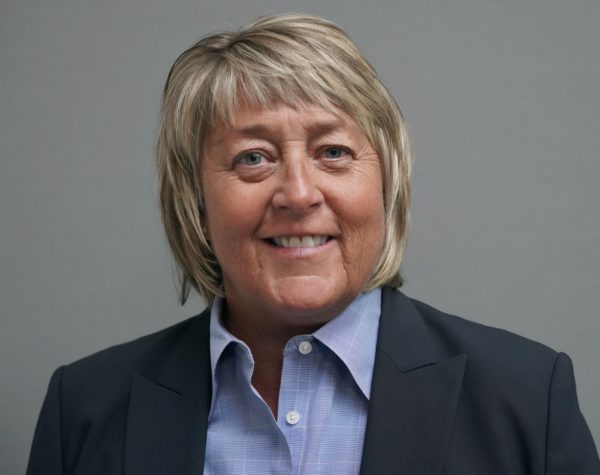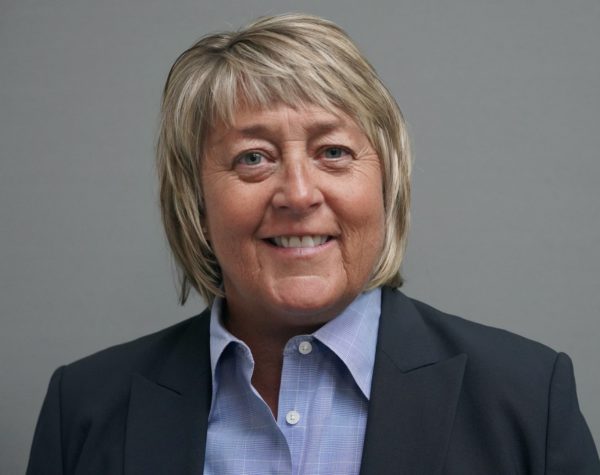By Lisa Turner | WASHINGTON – For ten years, LPAC has been at the forefront of supporting candidates who champion LGBTQ equality, women’s rights, and social justice. As the only national political organization dedicated to electing LGBTQ women to local, state and federal office, LPAC firmly believes that having LGBTQ women at the table makes a real impact in the quality of our democracy.
As Americans face down callous attacks on reproductive rights and LGBTQ equality, it is clear LPAC’s work on the frontlines of politics supporting LGBTQ women is more important than ever.
When LPAC was founded in 2012 only one openly LGBTQ woman had ever been elected to Federal office, then-Congresswoman Tammy Baldwin. Since then there has been progress – Baldwin was elected to the U.S. Senate, Kate Brown became the first openly LGBTQ person elected as a governor, Maura Healey became the first LGBTQ state attorney general, and Lori
LIghtfoot was elected as the first LGBTQ mayor of Chicago. However LGBTQ women are still underrepresented in public office, and LPAC is committed to continue this game-changing work.
So far this year LPAC has endorsed 100 LGBTQ women vying to become everything from city council and school board members to Congresswomen and governors. This is the most candidates LPAC has ever endorsed in an election cycle.
Making this many early endorsements in advance of the November elections was an important strategic decision. The first step to increasing LGBTQ women’s representation is to make sure they are competitive and win their primary elections, otherwise they will not even appear on the general election ballot. Endorsing candidates and providing financial support provides a critical strategic edge in their path to victory.
This is particularly important for LGBTQ women, who face institutional barriers when they run for office. Even when there is not overt bias and discrimination, LGBTQ women are often assumed to be less competitive than straight candidates or even gay men, and passed over when it comes to endorsements and fundriasing from political organizations. This is despite the fact that LGBTQ women actually often outperform other candidates in elections.
Take for example the 2018 midterm elections. In races for the U.S. House, 30 Democratic challengers defeated Republican incumbents. Of those successful challengers, three were LGBTQ women – Angie Craig, Sharice Davids, and Katie Hill. And on the Senate side, only two Democrats flipped Republican-held seats. One of those flips was an LGBTQ woman – Kyrsten Sinema. Clearly, when they advance from primaries LGBTQ women are formidable, viable candidates with general election voters.
The 2022 Election Cycle
This election cycle, LPAC has been committed to making sure LGBTQ women receive the early support they deserve. LPAC has contributed hundreds of thousands of dollars to more than 50 candidates in primary races, and consistently stepped up with endorsements and contributions to level the playing field by making an impact when it matters. Take three examples of candidates who had primary elections in May of this year.
Oregon Democratic gubernatorial nominee Tina Kotek received early support from LPAC, in terms of both an endorsement and financial backing. As Oregon’s longest continually-serving State House Speaker, Kotek was clearly the best Democrat to run in November. LPAC made a substantial contribution to her campaign in March, and she went on to her primary in May with 56% of the vote. LPAC has since doubled down on the investment and look forward to seeing Kotek become the first open lesbian to move into a Governor’s mansion. This is going to be one of the most expensive gubernatorial races in the country in 2022, and LPAC is proud to be leading the way among LGBTQ organizations in providing financial support to make sure Kotek wins.
Jamie McLeod-Skinner in Oregon’s 5th Congressional district received her first national and LGBTQ endorsement from LPAC. This was a bold move, as McLeod-Skinner was challenging a Democratic incumbent, U.S. Rep. Kurt Schrader. It was a risk LPAC was willing to take because the committee had been working with McLeod-Skinner from the early days of her campaign, and knew from political experience that she not only had a campaign plan in place to provide a path to victory in the primary, but also that she would be the best candidate for the general election. LPAC was confident in an early endorsement and investment. Other organizations followed LPAC’s lead, and McLeod-Skinner won the primary by a substantial margin.
State Rep. Renitta Shannon’s campaign for Georgia Lt. Governor also received its first LGBTQ endorsement from LPAC. Rep. Shannon was ultimately just 3% away from making the runoff election. This race is illustrative of the barriers LGBTQ women face when they run for office. Rep. Shannon was the only woman in the field, and the only LGBTQ person, however other national groups that focus on women and LGBTQ candidates did not endorse her. The 2nd place finisher (a straight white man) had five times the amount of funds and barely made his place in the runoff. If Rep. Shannon had been fully funded and able to adequately reach voters via paid communications, she likely would have been successful.
Rights and LGBTQ Women’s Leadership
The majority of the 100 candidates LPAC has endorsed this election cycle are running for State Legislatures. This is important, as the states have truly become the frontlines in the battles for reproductive health, LGBTQ rights, voting rights, and other important policy matters. And throughout the country, it is LGBTQ women who are leading these fights, oftentimes against long odds. When it comes to abortion rights, there are numberous examples of LGBTQ women leaders to chose from.
In Ohio, State Senator Nickie Antonio has been at the head of Democratic efforts, both in her past State House service and current State Senate seat, to block Republican efforts in the state pass a “trigger law,” which would have automatically ban abortion in the state when Roe was overturned.
In Texas, State Reps. Jessica González, Mary González, Celia Israel, Ann Johnson, Julie Johnson, and Erin Zwiener have been vocal opponents of extremist GOP legislation targeting reproductive healthcare and voting rights. They all participated in a walkout in the Summer of 2021 which delayed passage of these harmful Republican laws.
In Colorado, State Reps. Daneya Esgar, Leslie Herod, and Brianna Titone, along with State Sens. Joann Ginal and Sonya Jaquez Lewis, all co-sponsored legislation, passed in April 2022, which enshrined a woman’s right to choose into state law. This ensured that when Roe was overturned Coloradans continued to have access to safe and legal abortion services, and has allowed Colorado to serve as a haven for Americans in neighboring states seeking abortion services.
LGBTQ women are also leading the way at the Federal level. Sen. Tammy Baldwin is the lead sponsor of the Women’s Health Protection Act, legislation which would guarantee equal access to abortion across the country. Sen. Baldwin is also a lead Senate sponsor of the Respect for Marriage Act, which recently passed in the U.S. House and would require the Federal government to recognize same-sex marriages. Rep. Angie Craig and Congresswoman Sharice Davids were leaders in cosponsoring both pieces of legislation in the U.S. House.
Moving Forward
In example after example, LGBTQ women serving in local, state, and federal offices are truly leading the way in the fights for our rights and our Democracy. As frontline leaders, it is crucial that those LGBTQ women serving in office are re-elected, and that more are elected in November to join them. In order for that to happen they must win primary and runoff elections, and LPAC is proud to lead the way and step in early to support those efforts.
**********************

Lisa Turner is the Executive Director of LPAC, the national committee supporting LGBTQ+ women candidates running for political office.
Turner served in the Obama Administration as a political appointee at USDA and HHS. She has worked on the national political scene for many years as a campaign consultant.







